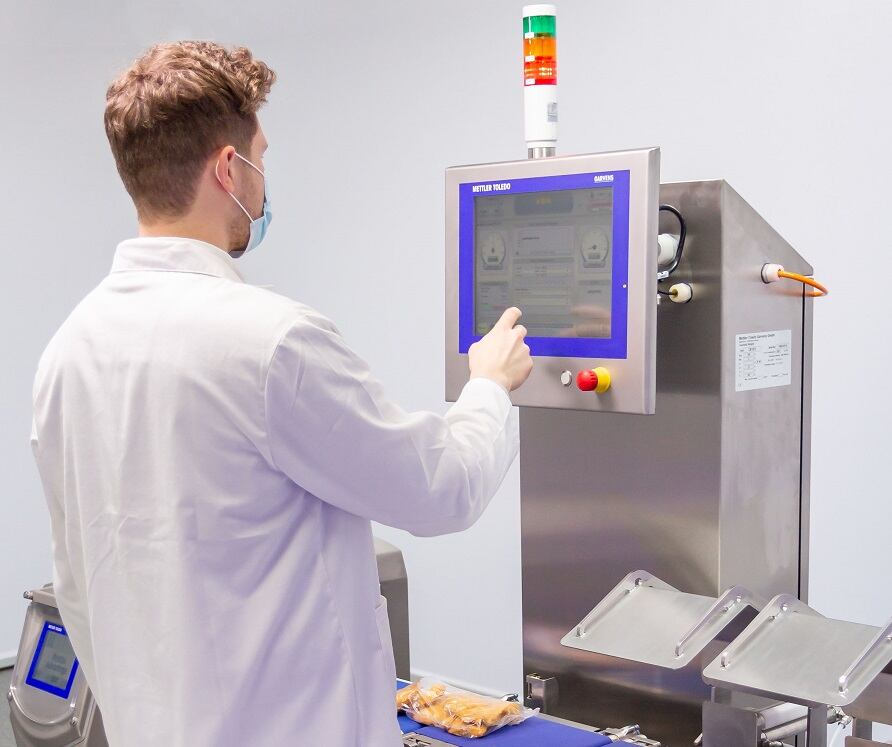"The first one is education. Education is lacking in food safety and hygiene. That isn't just at the consumer level. It's right the way through to food safety operatives, to food safety businesses, to food safety professionals.
"I all too often see businesses who can't identify the right hazards. If they can't identify the right hazards, how on earth are they going to control them as part of a HACCP plan?"
He said he saw businesses that were not committed to applying the basic principles of food hygiene, consumers lacking understanding of basic food safety principles.
'Essential life skill'
"Everyone needs and deserves an education in food safety and hygiene. It's just as important as teaching children how to cross the road, how to swim. It's absolutely an essential life skill."
Kyriakides said people would not expect those administering the vaccine against the SARS-CoV-2 virus to be ignorant about what it was and how to administrate it safely. We should expect the same level of education about food safety from everyone in our food system, he said.
Two weeks ago, his wife, who has a severe nut allergy, grilled a waiter at a restaurant where they were eating about whether its food contained any nuts. She was assured there would be no issue, but was then served a meal with a pesto sauce. When asked if the sauce contained nuts, the waiter checked and then silently took the meal away.
"The reason that happened is because he doesn't understand the hazard and the risks and they are severe. That isn't just food safety operatives. That's food safety professionals. I have been helping someone interview for a technical position recently. I have seen food safety professionals who have qualifications in HACCP document the qualifications who couldn't even answer a question on giving me some examples of microbiological hazards in their controls. It's absolutely frightening."
Prioritisation
The second area to concentrate on was better prioritisation, he said. "People can't see the wood for the trees. Whether it's a consumer or someone in industry, it's really difficult to understand what your key hazards are and what mitigations you need to put in place to control the risks from those hazards. Someone once said to me, 'do you know Alec, I can do anything, but I can't do everything. We have to help people prioritise.
"A lot of people haven't got a clue about the relative risks associated with different hazards and we need to help them if we're going to expect them to manage these things effectively."
The final area was culture, said Kyriakides. "It's more about the culture of a business full-stop, not just food safety. We haven't instilled a culture of food safety in society or business.
"We have got these fantastic regulations, but we spend far too much time focusing people's attention on just passing the test, passing the audit. We need to create a culture of food safety, a culture that actually puts food safety first because we want to generate safe foods, not because we have to generate safe foods."
UK food safety management faced some vital challenges in the future, he said. This included the increased sourcing of foodstuffs from overseas and the ease with which foods could be sourced online. "The dynamic of the traditional, controlled approach to flowing foods from a manufacturer through to a retailer or restaurant to a customer will shift and it creates additional risks."
Other challenges included the shift away from artificially added preservatives and sustainability (including packaging reduction) and the increase in under 16 year-olds and over 65s, growing the number of consumers more vulnerable to disease.
Technology was a 'massive enabler' helping the food industry to improve food safety, said Kyriakides. The availability of consumer or audit data was greater than it ever has been. "
Referring to the UK, Kyriakides said: "We have ended up today with probably the most regulated and inspected food system that we have ever had and possibly the most regulated and inspected in the world.
"Built upon those rules are the rules we apply ourselves, the self-regulation that's fundamentally based on HACCP [Hazard Analysis and Critical Control Points] approach to managing hazards and risks."
This was supported by process controls that are often now automated, such as automated temperature or pressure regulation and auditing 'like we have never seen before', he said. "The challenge for us in the future isn't so much with the data. It's drawing insight from that data to allow us to predict things in the future." For this to happen properly, the data had to be shared
"We now have analysis that can not only pick up parts per trillion chemically, but can also pick up traces of microbiological or biological contamination at the nucleic acid level. We have probably one of the most robust food safety management systems in the world."
However, we could not afford to rest on our laurels, he continued. "Why are there 2.5m cases of foodborne illness every year as reported by the Food Standards Agency and nearly 200 deaths? Why are we seeing every day recalls associated with allergens? Why have we had our supply chain fraudulently contaminated with things like horsemeat? And why do we still see a higher proportion of fraudulent foods?
"We have all the right tools available for us. We just are not prioritising and using them in the correct way."




